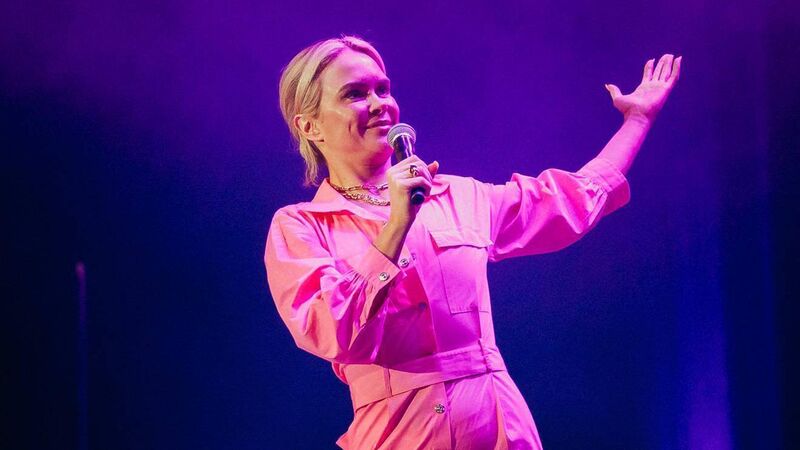As Joanne McNally recounts getting her period onstage, we ask why are we still so ashamed of our periods?

Joanne McNally Live at the Marquee Photo by Ray Keogh
On the latest episode of one of Ireland’s top podcasts, comedian Joanne McNally recounts the moment when a fan stopped a recent gig in Belfast’s SSE arena.
A sharp intake of breath is heard from co-host Vogue Williams as the Dublin comic reveals what the fan said to her side-stage.











